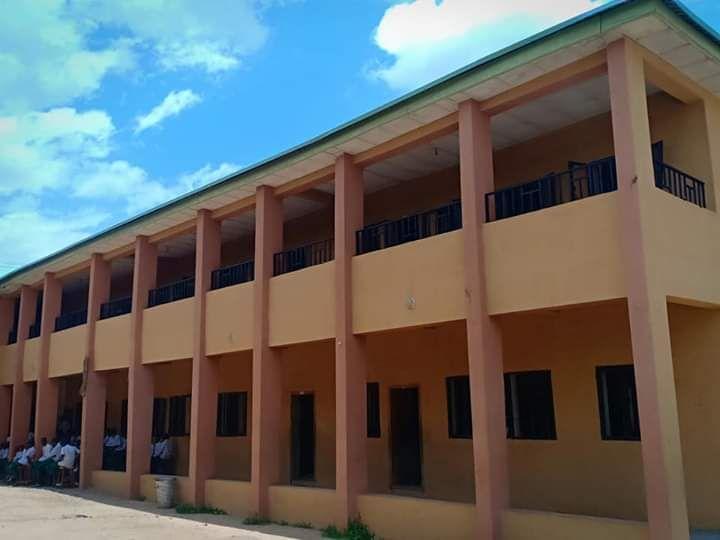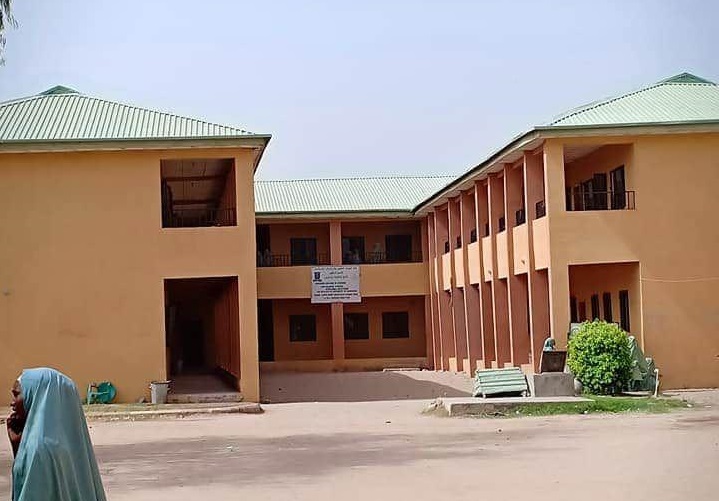ANNAHDA


The idea of establishing Annahada was conceived by the founder Sheikh Shariff Ibrahim Saleh Alhussaini in 1957. It was inspired by the founders’ interest in spreading Islam through the medium of education which appears more feasible in the long term for the Muslim community at that time and in the future. This was because Muslims especially in Borno at that time were hostile to the western model of education to the extent that they resist virtually any form of education that involve the use of class rooms for teaching. The founder took the challenge upon him and moved all around the State to enlighten the local communities. He used Islamic preaching method as the main tool in order to bridge the gap between him and the local communities’ understanding to the message of Islam which began initially with the command for Muslims to acquire knowledge or education without reference to type as whether Islamic or otherwise, and therefore it is not a crime for Muslims to integrate both systems of educations to achieve social and religious well-being of the society. Having spread this message across to the many muslin communities who were at loggerhead with the western style of education in Nigeria, the founder established a model islamiya school, Quranic School and a traditional Islamic education school where fiqh, tauhid, hadith etc are taught to the adults. The model Islamiya School integrates both western and Islamic education. The Quranic School is biased to quranic teaching only. The pupils in the model Islamiya School came from the local communities in Borno and the other communities outside Borno in Nigeria and the neighboring countries. These pupils were either accommodated in one of the hostels provided by founder or sent to stay with their relatives who live within the school neighborhood. Elderly people from within and outside Nigeria do attend the traditional Islamiya School. Upon graduation-that may take long or short time- the graduates are issued certificates (IJAZA) which qualify them to go back to their places of origin and establish their own schools based on the mode of operation defined by the founder. Having many students graduated from the different systems of education and also the many schools later established by the graduates of Annahda in many parts of Nigeria and indeed Africa. The founder thought over elevating the name of the institution into an Islamic organization that will bring all its’ former students and their established institutions under one umbrella. In this noble effort, the founder was assisted by some important personalities in Borno like Alhaji Umar Ali, Alh. (late) Bukar marte, Alh. (late )Lawan Ali Monguno Ambassador Abba Zoru, Alh. Mohammad Alkali, Alh. Kolu Biu and late Alh.Mohammad Bomai. The first four names constitute the Board of trustees, while the later three constitute part of the executives committee of the organization at the initial takeoff. With these names the organization was registered in 1981 with the Federal ministry of internal affaires at that time. OBJECTIVES The organization is established to achieve apart from the spread of Islam also the following objectives: 1-Encourage hard work, productivity, self reliance, fight ignorance social vices and eradicates poverty so as to create free and just society. 2-Cooperate with other organizations local or international which share similar objectives. 3-Maintain wisdom and tolerance in inviting peoples to Islam by considering peculiarities of different societies living in the world. These objectives can be achieved through the establishment of schools; youth care centers, enlightenment programmes on radio and TV, public lectures, seminars, workshops, conferences, translating and publishing of books and pamphlets on issues of global currency in Islam. These programs get support from the founders’ regular financial contributions, membership dues and other philanthropic assistance from individual, corporate bodies and donor organizations.
ORGANISATIONAL STRUCTURE Two bodies presently man Annahda: The Board of
Trustees and the executive committees at various levels. The Executive
committees are sub-divided into national/international and State executives.
The chair of the executive committees and the Board of trustees of the
organization is the founder who is also the spiritual leader. The state
executive committees are however headed by a chairperson from the State.
Presently the organization has well over 20 branch offices in Nigeria and three
officially registered International branch offices in Cameroon, Chad and Sudan
two more are due for registration in Niger and Burkinafaso. The Branch offices
are where appropriate supplemented with administrative departments that will
help in coordinating the operation of the organization. These departments
include: 1- Dawa / Islamic propagation department 2- Education department 3-
information department 4- Women affaires department 5- Aid/relief agency
department 6- Research and Documentation 7- Translation Department 8- Legal
Affaires Department 9- Finance department 1 Dawa (propagation unit) a-The Dawa
department is in charge of conducting sermons in mosques and enlightenment in
public gathering B-Assists in the building and maintenance of mosques.
c-Provide social services to needy communities especially convert through the
digging of boreholes, grinding machines, schools etc D-Periodically organize
seminars on controversial issues in order to clarify or put them in proper
Islamic perspectives so as to avoid the militant form of propagating Islam or
the outright rejection of anything alien to Muslims. E-pay periodic visits to
clinics or hospitals so as to psychologically boast the morale of sick persons
through prayers and mutual advises. f- Pay visits to inmates in prisons and
deliver lectures to them upon clearance from the authority. The department is
presently looking over hundreds of mosques in different states in Nigeria with
trained scholars strictly following the organization mode of preaching and of
propagating Islam. 2-Education a-in charge of regulating the educational
activities of the organization. b-establish schools of a standard commensurate
with the ones found in the different local communities. c- Design syllabi for
the different types of schools affiliated to the organization. d-organize
workshops for teacher training at various levels. e-encourages and assists in
publishing works on relevant educational subjects. f-Organize seminars on
education. The education unit of the organization has presently well over 200
affiliate schools of different types in the former states of the northeast.
Most of these affiliated schools use the facilities provided in the model
School of Annahda (College of Science and Islamic Studies) to sit for NECO,
WAEC and HISC exams. Successful candidates enroll in the colleges’ various
diploma Programs in Sharia, English education, Computer and Arabic and Islamic
studies education. The education unit of the organization has academic
affiliation with many institutions in Nigeria such as ABU Zaria and University
of Maiduguri. For International affiliation however the unit has links with
College of Islamic call at Libya, Azhar University in Cairo, Mujamma’ Abunnur
in Syria and a number of Universities in the Kingdom of Morocco. All of these
universities offer regular scholarship to students and periodically organize
workshops and training to Preachers and Imams from which the organization also
benefit. Scholarship offer from various universities are channeled to
interested applicants in various states of the Federation. Hundreds of people
have benefitted from this program. 3-Information unit A- Is in-charge of
disseminating information through the different media available to it?
b-prepares all press releases on behalf of the organization. C-it is the link
between the organization and the mass media organizations in the country. D-It
prepares and announces the organizations’ programs and all events of the year.
E-design and publishes pamphlets, newsletters and criers on issues relevant
to the organization programs. 4-Women affaires unit This unit though operates
under the organization supervision; it has its independent machineries, which
coordinates smaller subunits such as Dawa, Education, Aid group and handcraft.
The programs of this unit therefore comprise the following: a-organize monthly
lectures for married women where they move from one area to another within the
city or when requested by a community to do so. b- Provide assistance to female
convert by sometimes housing the destitute among them and providing them basic
household. c-on a weekly basis the unit organize lectures in their school
premises especially on topics touching on virtues of women in Islam.
d-Establish schools for adult women education. e-Organize adult literacy
classes in areas where women in the community show interest or need for
establishing them. f- Attract public patronage to the women hand skills in
order to encourage them produce more.. G provides basic training to women,
especially on computer, sewing skills, handicrafts etc. h-participate in
workshops, seminars and conferences pertaining to women and child health.
i-provide aid/ assistance to women victims in natural disasters. J-pay visits
to women and children on admission in hospital by settling off the medical
bills of the needy ones in some cases. 5- Aid/ Relief Agency The activities of
the relief agency comprises a-receive and distribute relief materials to the
orphans and the needy. b-provide first aid services to victims of natural
disasters. C-Assists in the re-settlement of victims of natural disasters such
as floods or fire outbreak. D-periodically organize courses to members of the
aid group. e-participate in all public gathering in the state. f-participate in
all NGO activities in Nigeria. G-Assist in government enlightenment campaigns
on child killer diseases, HIV AIDS and other epidemics. h-Participate in
seminars, conferences, workshops organized by government or sister
organizations especially on public health matters. Apart from the above
departments or units’ man by this organization, there are other units whose
services complement the internal operation of the organization these are: 6-
Research and documentation This unit is in charge of assessing and evaluating
activities of the organization over a period of time. This is done with a view
to determine success and failure of the organization in specific projects. The
unit is expected to recommend solution where failures are observed in some of
the organization projects. 7-Translation This unit translates documents that
are meant for public consumption. In this regard the unit work towards
translating works touching on Nigeria/ global politics and society but were written
in Arabic. Such work may be translated into English or Hausa depending on the
audience intended by the author. 8- Legal department The legal department gives
advices to the organization and helps it in drafting legal documents. It also
provide legal aid to people serving sentence term because of fines in which
case the department advises the organization to settle such fines. 9-Finannce
Department This department is in charge of formulating policies on financing
the organization programs. Many of the organization successful projects depend
largely on this department which scouts for money to finance them.